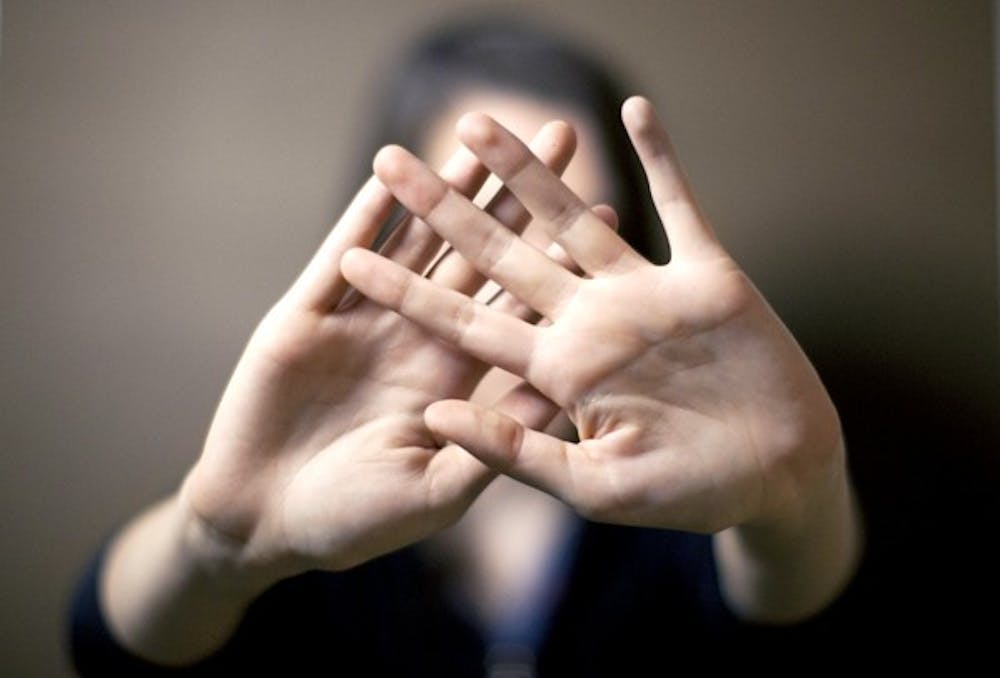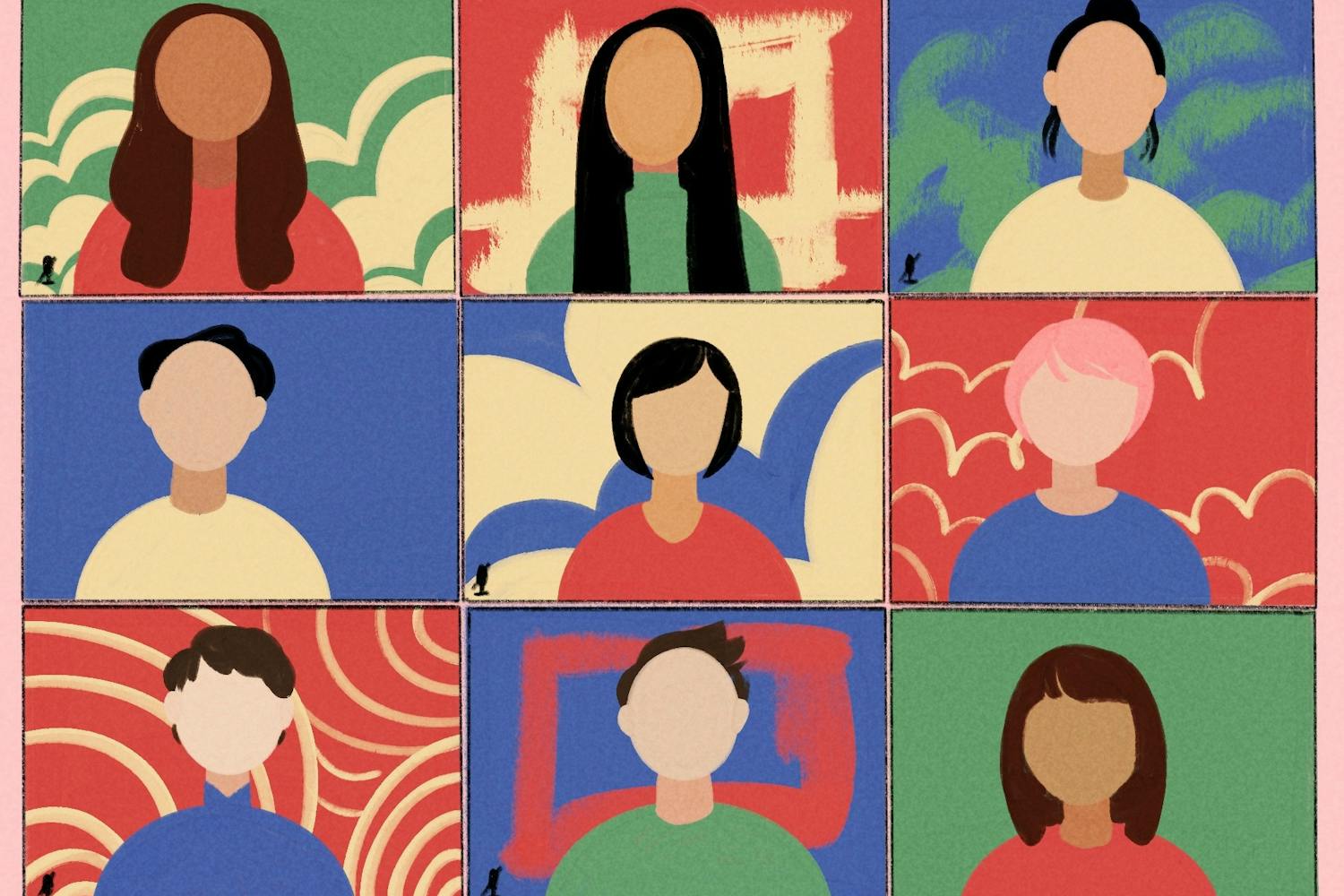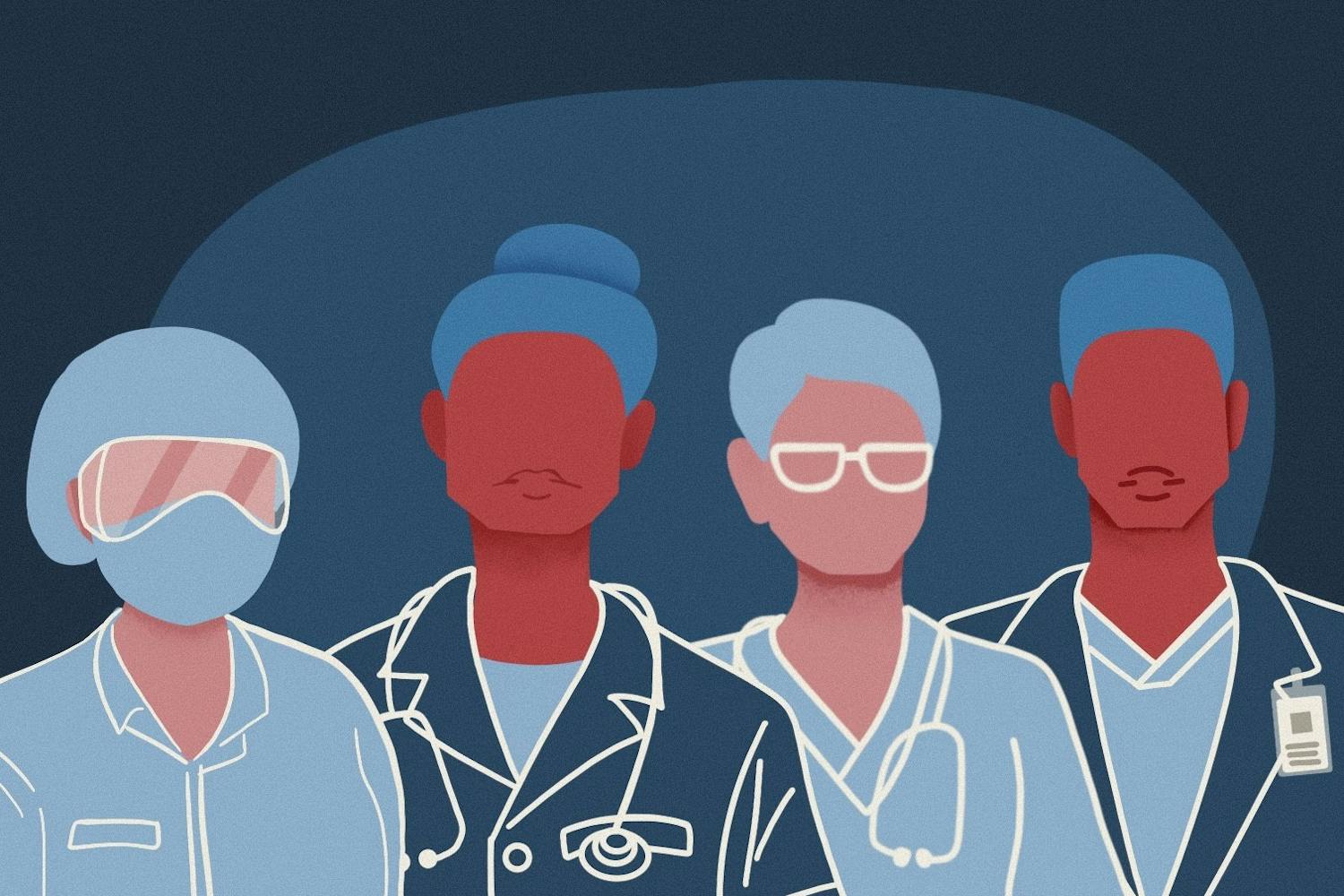 Approximately one in 33 female students and one in 200 male students at ASU have reported being a victim of sexual assault. However, police and advocacy groups estimate that the actual number is much higher, because many are afraid to speak out. (Photo by Perla Farias)
Approximately one in 33 female students and one in 200 male students at ASU have reported being a victim of sexual assault. However, police and advocacy groups estimate that the actual number is much higher, because many are afraid to speak out. (Photo by Perla Farias)A rise in sexual offense cases on the Tempe campus has led student organizations and the ASU Police Department to implement education programs that teach students how to stay safe in sexual relationships.
I ALWAYS Get Consent!, a student organization, began in 2011 after supply chain management and marketing junior Jenna Herman was sexually assaulted at an off-campus Halloween party in 2010.
While at a party on Alpha Drive, Herman said she took about two shots of alcohol and then completely blacked out for eight hours.
She said she woke up at the house of a 23-year-old fraternity member and could not remember how she had gotten there or what had happened during the night.
“Bits and pieces started coming back to me,” Herman said. “Maybe it’s a good thing that I don’t remember.”
She said she informed her mom about what had happened and drove to a hospital in Chandler where she received a pelvic exam.
Herman chose to report the assault to the ASU Office of Student Rights and Responsibilities, where she had to give a detailed account of her night.
She said the reporting process was slow and exhausting, because she had already told her story to so many people.
Dealing with the workers at the Office of Student Rights and Responsibilities was frustrating, because they were slow at returning phone calls and did a mediocre job at dealing with someone in her situation, she said.
“People at that office have too many responsibilities and a counselor who knows how to deal with someone in my situation would have been helpful,” Herman said. “They offered me optional counseling services after I reported the assault, but they should make it a requirement.”
Herman tried to press charges, but she had little evidence to support her case, because the hospital didn’t use a rape kit, and it was too late to detect if she had been drugged.
After about three months, the Office of Student Rights and Responsibilities told her there wasn’t enough evidence to hold the student accountable, she said.
“I was so upset,” Herman said. “I felt like it was a green light for him and whoever else to assault any girl.”
Herman said she was in a bad place and even thought about transferring out of ASU before her friend suggested she speak to Jaclyn Weeman, who was a community assistant at Barrett, the Honors College and in the same sorority as Herman.
As part of the housing employee training, Weeman was required to attend a workshop on how to respond and assist any resident who came to her with a sexual assault complaint.
After speaking with Weeman, Herman said she felt that just reporting her assault was not enough.
Herman wanted to show students that rape and assault on college campuses occurred more frequently than expected.
“I didn’t know it could be such a casual thing,” she said. “This happens all the time, and nobody talks about it. I don’t know how this happened to me. I didn’t think this could happen to anybody.”
At the beginning, Herman took a backseat role but later became more involved with the campaign.
She said once she became more involved, she realized that she could turn her situation into something positive.
“This was a changing point for me,” Herman said. “I wasn’t this helpless victim. This happened, it’s OK, and we can talk about it. I hoped to put pressure on the University to take (sexual assault) more seriously.”
Herman said though the man didn’t face any consequences, she was still glad she reported the assault, because it was her way of fighting back.
She said going through the reporting process was painful, but she encourages everyone to report such crimes so the University can have accurate statistics and improve their methods of handling sexual violence situations.
In an effort to decrease these statistics and increase the reporting of sexual violence, organizations such as I ALWAYS Get Consent! and the Tempe Undergraduate Student Government sponsored on-campus events to educate students about sexual violence.
I ALWAYS Get Consent! expanded its usual Tuesday tabling event and Wednesday Dinner and Dialogue to a full week of sexual violence education, beginning on Feb. 25 and ending on March 1.
The club partnered with the Tempe Sun Devil Fitness Complex on the first day of Consent Week to host “Consensual Cardio." Student attendees received yoga pants that read, “Consent is Sexy!”
The club also partnered with ASU Pitchforks and Priority Male, two of ASU’s a cappella groups, to host a concert and screened “The Girl with the Dragon Tattoo.”
I ALWAYS Get Consent! co-founder Gabriella Kissinger, a kinesiology and psychology senior, said the club passed out more than 700 shirts and had a lemonade stand in which every lemon was “squeezed with consent.”
The event’s biggest display was a visual demonstration consisting of 1,400 teal balloons representing the number of students who are sexually assaulted every year at ASU, Kissinger said.
She said a major goal is to eliminate and defy rape culture, a term which describes an environment where sexual crimes are common and either excused or tolerated.
Kissinger said many rape victims are blamed because they were wearing provocative clothing or drinking when attacked.
“We don’t talk about rape on a regular basis, unless it’s a punch line,” she said. “Rape isn’t a joke. Rape is something that happens every day to far too many people.”
The club is in the process of expanding to other universities, Weeman said.
It may apply to become a nonprofit organization, which will allow it to apply for grant funding and reach a wider audience, she said.
“Sexual violence is an underground epidemic on college campuses across our country,” Weeman said. “There is very little education for these students. Our goal has always been to end this culture of silence and educate as many people as possible about sexual violence prevention.”
USG Health and Wellness Director Hailey Alcaraz, a political science and global studies senior, said her duties include planning events and campaigns that deal with health and wellbeing.
She said she has recently tried to change the focus to sexual wellness and health.
To promote sexual health awareness, USG partnered with I ALWAYS Get Consent!
Alcaraz said USG is collaborating with ASU Wellness on a sexual wellness week taking place the second week of April.
This event will inform students on how to report sexual violence and will also have free pregnancy and sexually transmitted infections testing.
Like I ALWAYS Get Consent!, Alcaraz said USG wants to change the way rape culture is viewed and increase sexual violence reporting.
She said students often don’t report sexual violence if the infraction is minor or if they’re scared to talk about it.
“It doesn’t have to be your traditional definition of rape,” Alcaraz said. “Anything you didn’t give verbal or non-verbal consent to is considered sexual assault. We think of rape in a very specific context. A lot of people don’t think of coercion as rape, but it can be.”
Man Up ASU, a student club that encourages male students to respect their female peers, has been developing a bystander intervention training program.
Vice President Samuel Richardson, a business marketing junior, said the current 75 members of Man Up and any future members are required to take this training. It teaches them how to identify and properly intervene in situations such as sexual assault or harassment.
Richardson said the club also plans on inviting guest speakers to the meetings to speak about respect.
The club wants to spread its message by starting Man Up chapters at other college campuses and high schools in the area. A chapter of the club recently started at Red Mountain High School in Mesa.
“We feel that respect on a college campus is an important component to the college experience, not only in the area of sexual assault, but even on a broader sense of respect for women,” Richardson said. “We hope that eventually as more men get involved we can begin to change the way that men view women and build a culture of respect at ASU.”
According to the annual security report released by ASU Police in October 2012, 13 forcible sexual offenses were reported at on-campus locations in 2011. Forcible sexual offenses are defined as any sexual act done against the victim’s will or without consent.
In 2010, only six forcible sexual offenses were reported at an on-campus property and only three were reported in 2009. The difference between crimes reported in 2009 and 2011 is more than a 300 percent jump.
According to an assessment of ASU done by the American College Health Association in 2011, 3.2 percent of female students and .6 percent of male students reported having experienced attempted or completed sexual assault. That is 1 in 33 female students and 1 in 200 male students.
That same assessment reported that 6.2 percent of female students and 2.9 percent of male students experienced sexual touching against their will.
The study also showed that 1.3 percent of students reported being in an abusive relationship.
The Tempe Police Department reported four sex offenses in which the victim was an adult in 2009 and only one sex offense in both 2010 and 2011.
In the first half of 2012, two sex offenses were reported.
The reports compiled by the police departments only represent reported cases.
Tempe police spokeswoman Molly Enright said many victims don’t report being abused or harassed, because they are scared.
“Often victims do not know where to turn,” she said. “If I had one thing I wanted to say to someone in an abusive relationship it would be, ‘You are not alone, you are not to blame and you can escape this.’”
ASU offers a variety of prevention and response programs.
The police department, along with other departments on campus, offers educational programs aimed at reducing sexual violence.
Educational programs include healthy sex seminars at the dorms on campus and mandatory employee harassment courses.
The police department’s crime prevention unit also runs Rape Aggression Defense Systems or R.A.D., a 12-hour training course designed to empower women by teaching them self-defense abilities.
Women enrolled in the course are taught practical defense techniques and are given the chance to practice during simulated scenarios.
ASU Wellness also provides programs to educate students on how to prevent sexual violence.
Programs include Consent 101, which teaches the basics of consent when put into the context of a sexual relationship, and Frisky Business, which is an interactive discussion that allows participants to examine how to communicate boundaries and ask for consent.
Students who are victims of sexual violence can seek support from ASU Counseling Services or Student Advocacy and Assistance.
For immediate help, students can contact EMPACT Suicide Prevention Center or the National Sexual Assault Hotline.
Reach the reporter at ppineda@asu.edu or follow her on Twitter @paulinapineda22




